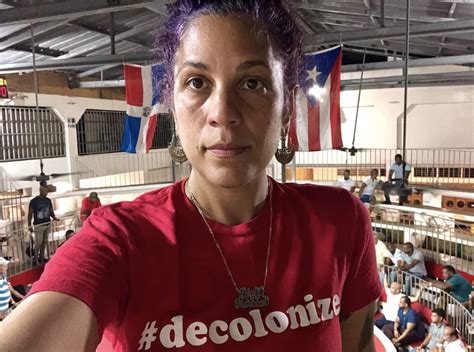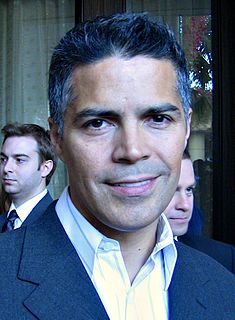A Quote by Gloria Steinem
... patriarchy creates megapatterns that affect us all--even as we forge different individual choices within them--just as do themegapatterns of nationalism or racism.
Quote Topics
Related Quotes
When people today say 'racism,' they mean it's a nationalism they don't like. Racialism used to be a good thing, a looking-out for what was best for one group... Israel comes out of that 19th-century idea of nationalism. Many Arab states also have preferences. It's fundamentally unfair to decide that one is racism and the others aren't.
Until White America can look through the eyes of a Black man, nothing will change. Even we as Black people sometimes don't want to face what's going on within our communities because some of us crossed over into a different tax bracket, but these issues affect the communities that raised us, so it affects us all.
To me, one of the most profound questions we can ask is: "So what?" And so what if there's an indefinite number of worlds with alternate "us-es" in them? The "so what," to me, comes alive when I ask myself: "What if I could find a way to get in touch with those alternate mes who made those choices?" That is, persons who, if I saw them now, I wouldn't even recognize because their choices, once small, have multiplied to make them such different people.
I'm trying to mediate between individual agency and structural determination. I accept that people make individual choices, quite thoughtful, quite careful, quite difficult choices, but they don't make them without constraints that shape what choices are possible and provide the intensity of the push toward choosing.
An important purpose for mortality is to help us learn to recognize and to choose the positive even though the negative more fully surrounds us. We make this choice consciously or unconsciously in every moment of the day, and these millions of tiny choices create the foundation of our identity. We are what we think. We are what we say, what we do, what we fill our lives with. Ultimately, every being creates himself by these countless, crucial choices.
You see, feminists don't really like to define the Patriarchy. They prefer to keep it nebulous and amorphous so they can conveniently blame it for everything that goes wrong in their lives. Not being paid enough? Patriarchy! Not getting a promotion? Patriarchy! Too many catcalls? Patriarchy! Too few catcalls? Patriarchy!
Silicon Valley tends to believe in the individual who creates a small group and does something big. Democracy is always frustrating, but it creates a society that, for example, allows us to invest in each other's kids, to have public education, to have both a greater society and individual freedom for creating businesses.
In the U.S., while individual whites might be against racism, they still benefit from their group's control. Yes, an individual person of color can sit at the tables of power, but the overwhelming majority of decision-makers will be white. Yes, white people can have problems and face barriers, but systematic racism won't be one of them.
We're a social species, and we want to get along with the people we like and who are like us. That's just good adaptive behaviour. We're more likely to accept something if we hear it from a friend, whereas we're sceptical of people who are not like us - which is what leads to racism, nationalism, sexism and all forms of bigotry.






































